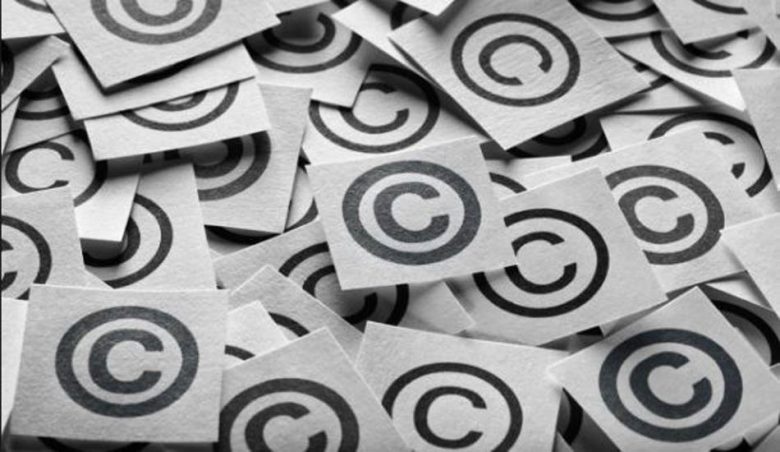When you create something in artistic format such as a piece of writing or music, you automatically get protection to use that creation how you wish without anyone necessarily being able to use it without your permission. This protection is known as copyright and allows the author to exploit their hard work and try and make money from it. The format that you create the piece of work determines how long the protection lasts for – it is not forever – and this duration has been at the heart of some quite strong discussion recently.
Looking specifically at music, to quote the Patent Office website:
Copyright exists in your original music composition or score for your life plus 70 years from the end of the year of your death. The same length of time applies for the lyrics, whereas the sound recording only lasts for 50 years from the end of the year in which it was made or, if published in this time, 50 years from the end of the year of publication. If not published during that 50 year period, but it is played in public or communicated to the public during that period, then copyright will last for 50 years from when this happens.
A socialist might ask why is there a duration at all whilst a capitalist would ask why is it not longer? The two extremes, whilst not really a fair description of the representatives of the two sides of the argument, do allow some form of reasoning to be applied to a) why there is a duration at all and b) why the number of years is set as it is.
Let’s look at the two points of view:
The extreme socialist in my analogy above believes that everyone is equal and everything should be owned by the state. Ignoring the realities of communism, this could be said to mean that anything created is owned by everyone – it is in the public domain. If I take a photo then I should release it and let anyone use it however they like. And equally, I can use anything anyone else creates. This helps innovation because I could take a piece of software, improve it and then release the better version for the greater good. Or I could edit a movie to change some part of the production quality to my tastes, then release it as another version. Clearly, this would result in better or differentiated works being made available. It encourages creativity and competition.
On the other hand, the extreme capitalist would want to know what they would be getting out of their hard work. If I go to the effort to write a story and come up with some brilliant ideas, it is only fair that I should receive some form of compensation for that work. It is unfair if I go to all the trouble of writing some software only to have someone else take it, improve it and then sell it themselves. I want to be paid for my work so that I can live comfortably.
You can see here that we have two extremes – the one that fosters creativity and innovation and the other that sees authors rewarded for their work. Unfortunately, in reality it is not so simple. It could be true that the incentive of payment for something I create inspires me to work on it thus resulting in creative works being created anyway. On the same lines, I might see an idea for some software and think I can do it much better, and write it in a completely different way. Here I have derived the idea from existing work but the expression of that idea is different and, I would hope, better.
So to solve this problem, as with much of law, we need to come to some form of compromise – an equilibrium. It is this level that we have now. In the case of music, I can publish a recording and control the use of it for 50 years before it enters the public domain and anyone can do what they like with it. This appears to have worked quite nicely until now.
Suddenly, the music industry have realised that some major works were recorded nearly 50 years ago and in a few years their source of revenue will expire. It is this sudden comprehension that has prompted the music industry to start lobbying the government to extend the duration to publication + 95 years for music, thereby securing their own revenue for many years to come.
The capitalist says “fair enough – I would like some more money”. The socialist says “hold on one minute, I was going to use that in my own creative work”. Once again we are faced with an issue of paying money to the publishers or allowing someone to adapt and create something new.
One might say “ahh, it’s already 95 years in the USA and they’re doing fine”, but my response would be “but are they really?”. Is it not true that all the best and most famous musical creations have come from the UK? The likes of The Beatles, The Rolling Stones, Pink Floyd, Muse, Oasis, The Verve, Coldplay, and many more. How many extremely successful groups are American? But that is a moot point, subjective to person tastes. And I’m biased towards the UK anyway!
Basically, innovation/creativity verses profit.
The corporations do pay a lot of tax but should it be at the expense of creativity – creativity which has seen a lot of very good British artists make a lot of money? Do we want to stop artists from the beginning of the musical revolution of the 1950s from earning any more money at the possible expense of new work? So what does the government do? What is does best – it set up a committee!
At the Enterprise Conference on 2 December 2005, the Chancellor of the Exchequer announced that, as part of the Pre-Budget Report 2005 package, he had asked Andrew Gowers to lead an Independent Review to examine the UK’s intellectual property framework.
– HM Treasury Press Release
This review called for evidence from a wide range of people and organisations from all sides of the discussion. It has looked at all aspects of the structure of intellectual property in the UK but what I am concerned with in this blog post is the recent comments on copyright term extension.
The Open Rights Group, of which I am a Founding Member and part of the Technical Team submitted evidence (to which I contributed) with many of the arguments and points I have mentioned above. As the issue became more and more important in the eyes of the media, ORG also set up a campaign to help raise awareness. This included a talk from Professor Jonathan Zittrain who is a Professorial Fellow at Keble College Oxford and Professor of Internet Governance and Regulation and the Oxford Internet Institute (listen to the speech here).
On Monday the BBC News website featured an article which stated that the Gowers Review would:
recommend the terms are not extended, a well-placed government source has said. This outcome would mean the report had “missed a great opportunity” to support the music industry, the chairman of the British Phonographic Industry claimed.
This is great news for the ORG campaign as well as for artists in the UK. It means that protection will continue to exist but more popular work will start to become publicly available which should foster new creativity.
But there is a catch.
The Gowers Review is not binding on the government. It is there to advise and the government could easily ignore it. With this news, the pressure from the music industry is going to get massively greater and I imagine they will do all they can to influence the final decision. I would, however, hope that the government doesn’t ignore the Gowers Review, which has far more expertise in the area and can be expected to advise the government correctly.
How likely is that though? We shall see




